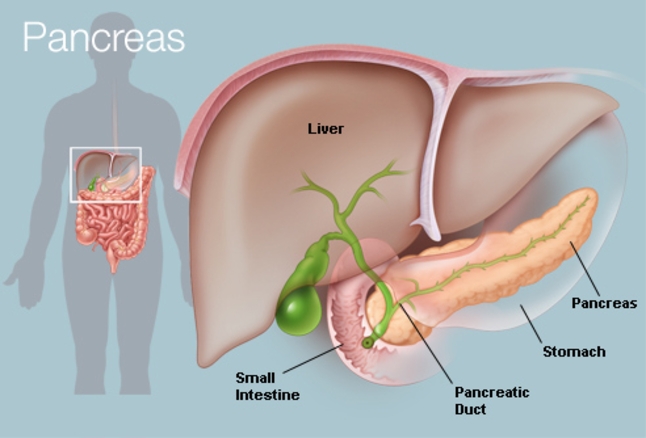What is Cancer of the Pancreas?
Kindly permit me a space in your weekly health column to discuss cancer of the pancreas. I want to know what it is, and why it is dangerous and a killer disease. V Joy Thanks for your question, Joy. Cancer of the Pancreas begins in the tissues of one’s pancreas, an organ in our abdomen […]

Kindly permit me a space in your weekly health column to discuss cancer of the pancreas. I want to know what it is, and why it is dangerous and a killer disease.
V Joy
Thanks for your question, Joy. Cancer of the Pancreas begins in the tissues of one’s pancreas, an organ in our abdomen that lies behind the lower part of the stomach. Pancreas releases enzymes that aid digestion and produces hormones that help manage our blood sugar.
Several types of growths can occur in the pancreas, including cancerous and noncancerous tumors. The most common type of cancer that forms in the pancreas begins in the cells that line the ducts that carry digestive enzymes out of the pancreas (pancreatic ductal adenocarcinoma).
Pancreatic cancer is seldom detected at its early stages when it’s most curable. This is because it often doesn’t cause symptoms until after it has spread to other organs. This answers your question on ‘why it is dangerous and a killer disease’, because it is hardly detectable until it reaches advanced stage.
What are the symptoms?
Signs and symptoms of pancreatic cancer often don’t occur until the disease is advanced. They may include:
- Abdominal pain that radiates to your back
- Loss of appetite or unintended weight loss
- Yellowing of your skin and the whites of your eyes (jaundice)
- Light-coloured stools and dark-coloured urine
- Itchy skin
- Existing diabetes that is becoming more difficult to control
What are the potential causes?
It is not clear what causes pancreatic cancer. Some factors have been identified that may increase the risk of pancreatic cancer, including smoking and having certain inherited gene mutations. Pancreatic cancer occurs when cells in the pancreas develop changes (mutations) in their DNA. These mutations tell the cells to grow uncontrollably and to continue living after normal cells would die.
What are the risk factors?
Factors that may increase your risk of pancreatic cancer include:
- Smoking
- Diabetes
- Chronic inflammation of the pancreas (pancreatitis)
- Family history of genetic syndromes that can increase cancer risk
- Family history of pancreatic cancer
- Obesity
- Older age, as most people are diagnosed after age 65
What are the complications?
As pancreatic cancer progresses, it can cause complications such as:
- Weight loss
- Jaundice
Pancreatic cancer that blocks the liver’s bile duct can cause jaundice. Signs include yellow skin and eyes, dark-coloured urine, and pale-coloured stools. Jaundice usually occurs without abdominal pain.
- Pain. A growing tumor may press on nerves in your abdomen, causing pain that can become severe.
- Bowel obstruction. Pancreatic cancer that grows into or presses on the first part of the small intestine (duodenum) can block the flow of digested food from your stomach into your intestines.
How is it diagnosed?
- Imaging tests that create pictures of your internal organs. Techniques used to diagnose pancreatic cancer include ultrasound, computerised tomography (CT) scans, magnetic resonance imaging (MRI) and, sometimes, positron emission tomography (PET) scans.
- A biopsy is a procedure to remove a small sample of tissue for examination under a microscope.
- Blood test for specific proteins (tumor markers) shed by pancreatic cancer cells.
What are the treatment options?
Treatment for pancreatic cancer depends on the stage and location of the cancer as well as on overall health and personal preferences. For most people, the first goal of pancreatic cancer treatment is to eliminate the cancer, when possible. When that isn’t an option, the focus may be on improving quality of life and limiting the cancer from growing or causing more harm.
Treatment may include surgery, radiation, chemotherapy or a combination of these. When pancreatic cancer is advanced and these treatments aren’t likely to offer a benefit, the focus is on symptom relief (palliative care) to keep one as comfortable as possible for as long as possible.
